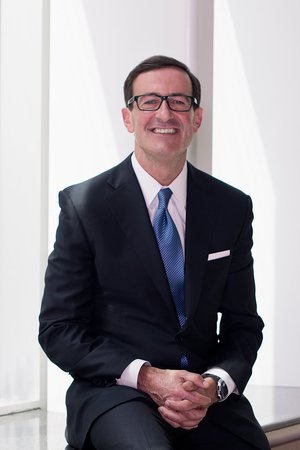By Paul Newport, Jubliee Jobs Job Counselor
Men and women who are currently being released from jail and seeking to re-enter the workforce are facing a particularly grim societal scenario. The COVID-19 pandemic has ravaged the economy and swept away millions of jobs. Most of these men and women are among the region’s lowest income earners (less than $24,000 annually).
They are hoping to find work in a highly competitive job market and are often labeled as “ex-offenders.” It is a wonder these previously incarcerated individuals, whom we refer to as “returning citizens,” can advance at all.
The Greater Washington Community Foundation’s 2020 VoicesDMV Community Insights survey found that the most significant barrier for workers and unemployed people seeking jobs is their level of education and training. This is certainly a reality within the population we work with at Jubilee Jobs, a long-standing nonprofit in Adams Morgan, that provides job placement and retention services for eager work applicants, many of whom have not graduated from high school.
The majority of our applicants are unemployed when they come to us. In addition, many have been previously incarcerated, and the VoicesDMV report found that 4% of respondents (1 in 25) noted that their criminal record was a barrier to employment. We should remember that most of these individuals are trying not only to find work, but also live under the restrictions of a halfway house, which may prevent them from attending important job training workshops and, in some cases, a job interview. Coupled with other common predicaments our applicants face, including something as simple as lack of bus fare, these challenges cause hardship and frustration.
To address some of the problems faced by returning citizens, Christine Gossens, Executive Director of Jubilee Jobs, initiated the Returning Citizens COVID-19 Relief Fund. This cash assistance program, funded in part by The Community Foundation’s COVID-19 Emergency Response Fund, helps provide immediate financial assistance to Jubilee Jobs placed clients who lost their jobs due to the COVID-19 pandemic.
We are immensely grateful for this contribution and for the assistance it enabled us to provide to those in need. The quick impact of this relief fund was immediately absorbed.
On two consecutive Fridays in May, our returning citizens applicants who had lost jobs due to COVID-19 made their way to our Northwest office and entered one by one in their masks to collect their envelope containing $450. Our applicant Hayden hoisted himself up in the air and knocked his boots together to express his joy. Another applicant, Crystal, had tears in her eyes as she explained to us how she was sitting looking out her bedroom window wondering what on earth she was going to do having just lost her job, when she received our phone call about the cash assistance program. These are just two of many other redeeming stories.
The data presented in the VoicesDMV report maps a challenging road ahead for all our job applicants, especially for returning citizens. But, our training and workshops will continue to focus on what they have always done: presenting the most reliable, efficient, and professional ways of preparing for a job search and successfully completing an interview.
Many of our applicants have limited access to computers, so we have now implemented further training in technology and have tested a pilot class on computer basics. Post-COVID-19 (whatever that might look like) we will harness our broad understanding of the community we work with to develop options for entry level work that is reliable and sustainable. Doing so will hopefully continue to relieve some of the burden from these vulnerable citizens.





